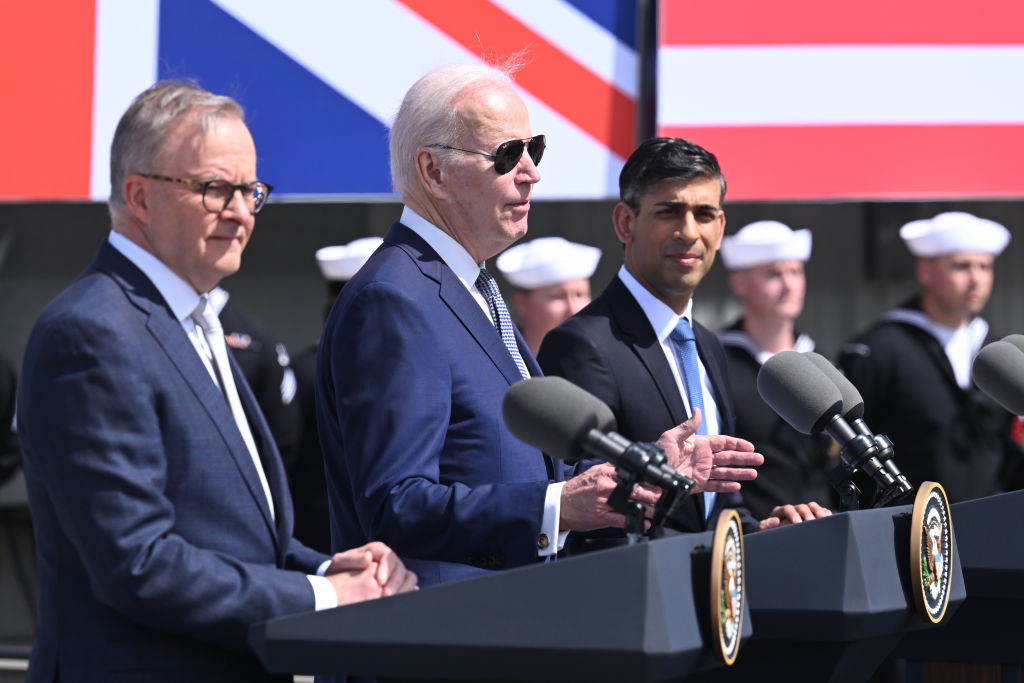Rishi Sunak has announced in California the details of the UK-US pact to supply Australia with nuclear-powered submarines. Aukus was first-unveiled in September 2021: in the 18 months since, the three nations have agreed that the new fleet will be built in Britain and Australia to British designs. It’s only the second time ever that the United States have shared nuclear submarine technology with its allies, following a similar UK/US deal in 1958. The first of these submarines are expected to be ready in the UK in the late 2030s and will mainly be built by BAE Systems at Barrow-in-Furness, and Rolls-Royce. Appearing at a joint statement on Monday with President Biden and Prime Minister Albanese, Sunak hailed the Aukus arrangement, stating that ‘for the first time ever, it will mean three fleets of submarines working together across both the Atlantic and Pacific keeping our oceans free, open, and prosperous for decades to come.’ He called the pact ‘the most significant multilateral defence partnership in generations’ and announced a further £5 billion in defence spending over the next two years to increase the budget to 2.25 per cent of GDP.
‘I’m proud to be your shipmates’ declared Joe Biden; Anthony Albanese hailed the agreement between ‘true and trusted friends.’ But overshadowing the whole occasion was the spectre of Beijing, the other great rival power to America and its Pacific allies. The word ‘China’ appeared just once in Sunak’s 600-word remarks but it was the subject which dominated the conversation in California and in Westminster too. The Prime Minister’s joint statement came just hours after the Integrated Review, which labelled the country as ‘an epoch-defining and systemic challenge’ to the UK. Changes outlined include a national resilience unit within the National Security Council to consider scenarios like how Britain’s supplies of semiconductors might be disrupted in the event of a Chinese invasion of Taiwan. Officials from the US International Development Agency discussed with MPs Britain’s role in responding to China’s ‘One Belt One Road’ initiative. And the nature of China’s threat towards the UK was the main focus of Rishi Sunak’s broadcast interview in California, with the PM telling Channel 4 that Beijing’s behaviour is ‘increasingly concerning.’
The timescale of Aukus means that is different to much of the West’s current policy-making, which is often criticised for being too short-termist and poorly considered. There are legitimate criticisms to make of the deal, with some asking whether Britain’s over-stretched armed forces really have the capacity to project military power in the Pacific. But one encouraging sign for Aukus’s supporters is how durable it has already proved to be. When the pact was announced 18 months ago, Boris Johnson, Scott Morrison and Joe Biden were the three men fronting the deal. Only Biden now remains, with the Australian conservative ‘ScoMo’ since replaced by Labor’s Anthony Albanese. In Britain, the Labour party has been skeptical of the Indo-Pacific tilt but said that ‘there may be a change of government at the next election, but there will be no change to Britain’s commitment to Aukus.’ That is a testament to the pact’s success in binding three allies to a long-term agenda, regardless of which of their respective parties are in office.







Comments